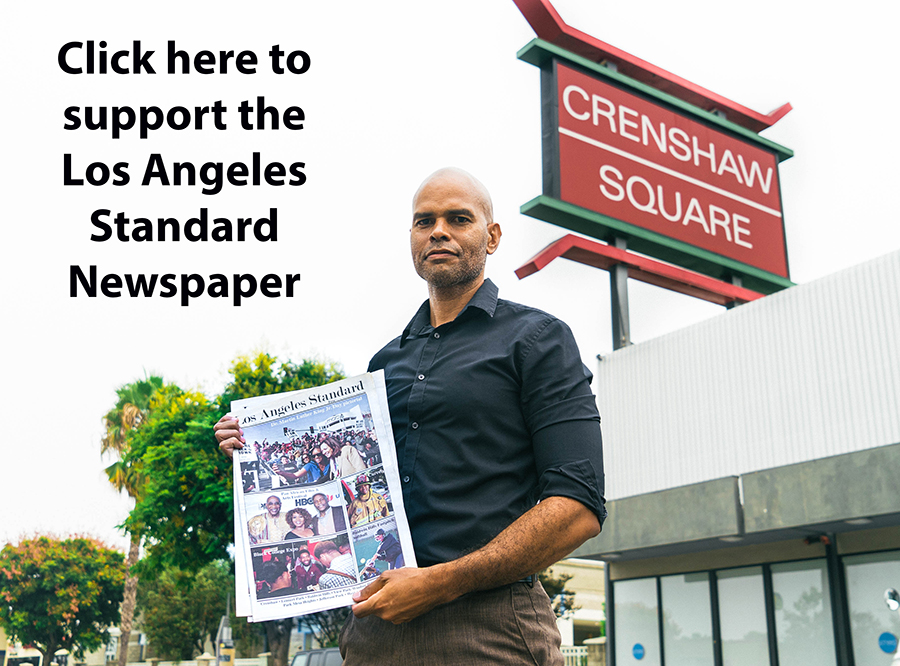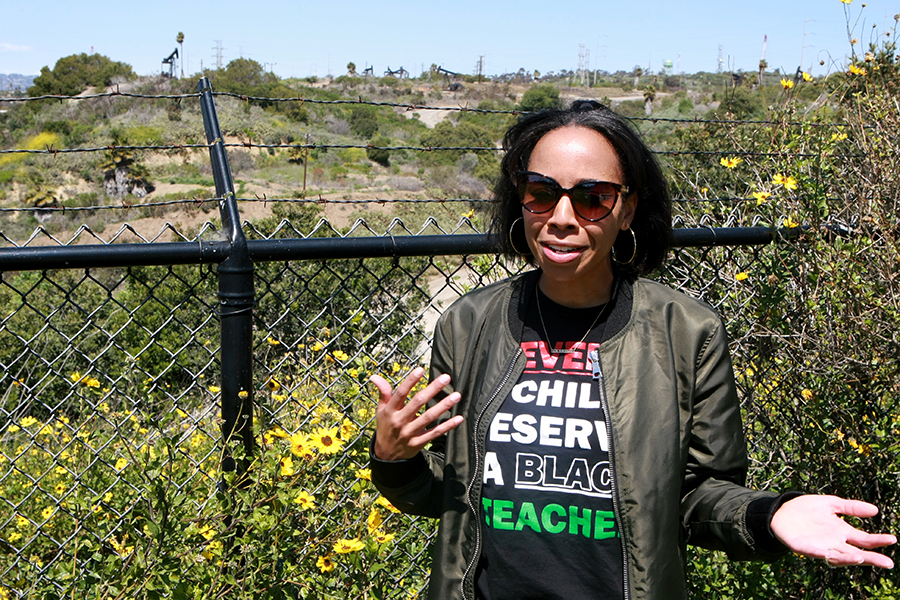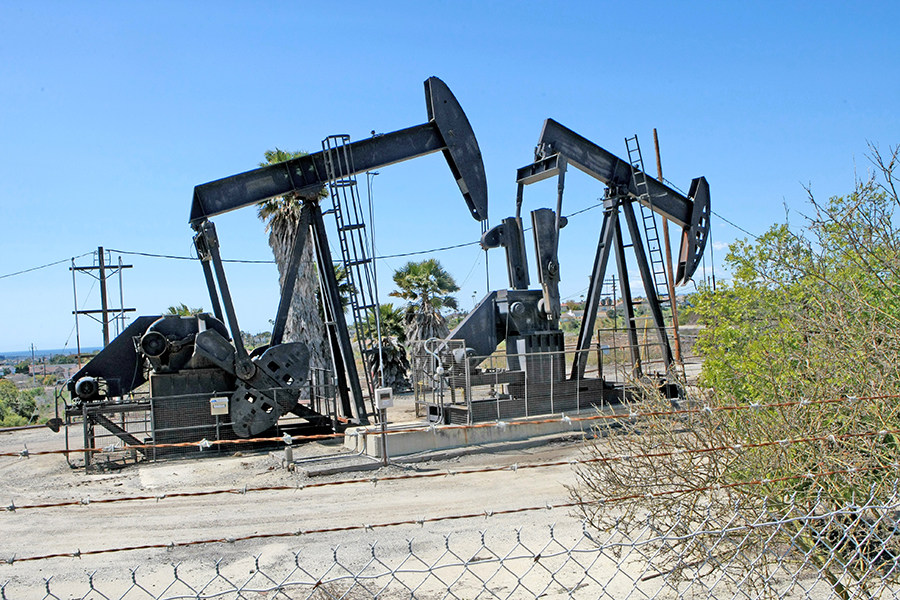Climate issues are handled in a different manner in Black communities, leading to several health issues.



This is Part 2 of a two-part series. Part 1 defined what climate change and global warming are and how they have a negative impact on the environment. Part 2 is focusing on climate change and global warming as social justice issues, as Black communities, including higher-income Black neighborhoods, typically have fewer resources to handle these issues. Click the link to read Part 1. https://lastandardnewspaper.com/index.php/health-1/1082-climate-change-and-global-warming-s-impact-on-the-future.html
By Jason Lewis
Climate change and global warming negatively impact the entire planet, and in the United States, Black communities and lower income communities tend to be neglected and under-resourced. When it comes to Black communities, it does not even have to be lower income.
The Inglewood Oil Field, which sits adjacent to Baldwin Hills, View Park, Windsor Hills, and Ladera Heights, is an example of that. Those are some of the wealthiest Black communities in the nation. Would that oil field still be operational if those neighborhoods were predominantly White?
“No,” said climate justice educator Brittany Jefferson @ClimateJusticeTeacherMom. “The Culver City part of the Inglewood Oil Fields has shut down. Culver City was able to get it stopped. Culver City is a predominantly White suburb of Los Angeles. What happens is that we as Black communities and Black sectors of cities, what we experience is a divestment from our communities. There have been areas that have been torn up by the insurrection from the ‘90s that never got fixed up. But now that we see gentrification, now we see that areas that have been neglected for so long, now being beautified and remodeled because of the demographic that is now moving into the area. Why weren’t institutions willing to invest in beautifying this community for the people who lived here? And it wasn’t because we didn’t have money. Leimert Park, Ladera Heights, View Park, all of those areas are wealthy Black communities. There are some areas that are of lower socioeconomic status. But for the most part, these are wealthy communities and nice houses. But because of our identity, our city and state governments and private corporations have just not seen or felt the desire to invest in our communities. So that’s why we see things like this (oil field) right in our backyards. This is not acceptable in a place like Beverly Hills. We have to be the people who advocate for ourselves.”
The oil field sits right next to expensive homes and a park that has youth baseball and soccer fields. The majority of the people who live in those homes and utilize that park are Black, and the oil field presents a health risk.
“These extractive practices of pulling oil and transporting oil, they give off fumes and chemicals,” Jefferson said. “That impacts our health now. That’s why you see increased instances of asthma, heart disease, and other types of chronic illnesses that occur in Black communities, indigenous communities, and rural communities because of the industrialization of our society. There is waste that results from those things, and there are certain populations who are being required to live next to that waste.”
Black communities around the nation have been neglected for several decades, and Los Angeles has not been any different. In efforts to advance society, the negative impacts on Black communities are not taken into account to the same degree as more affluent areas.
“Our human history of colonialism, capitalism, and industrialization, those ideas of progress also came at the sacrifice of certain people,” Jefferson said. “When we say certain people, I mean Black people and indigenous people. Colonialism is a very extractive practice. It takes a natural resource, gives it a value, and then extracting that resource, and then processing that resource for industrialization. That takes away from the natural environment. When we think about labor, and we think about who is negatively impacted by poverty, mass incarceration, and things like that, it is Black people. It is Latino people. We have to acknowledge that in order for us to be able to truly move forward, we have to have a more just and equitable society. We can’t continue to extract from communities, or continue to have practices that require waste, or that release chemicals and have certain people bear the brunt of those consequences, because we kind of shove it over there.”
Around the nation climate change and global warming have become a heated political debate, with politicians on the right not being concerned with the impact that these practices have on the environment and also on Black communities.
“It fits along the lines of the anti-woke, anti-CRT movements because it often requires us to analyze historical events from multiple perspectives,” Jefferson said. “So that means not the Euro-centric perspective. It means centering the voices and perspectives of Black people and indigenous people. It’s unfortunate that those types of things have been construed into these, sort of like, dog whistle phrases. I do think that there’s pushback, especially from politicians that receive funding from oil companies, which is the main thing that we need to move away from. If you’re a politician who makes their money on oil and gas lobbies, then you’re not going to preach the message of that.”
Jefferson’s advice to people is to become more involved in local politics.
“It’s always important for us to look at systemic changes,” she said. “Civic engagement is hugely important. We have to be paying attention to what our city councilmembers are proposing. To what our state government is proposing. California is actually a trailblazer in certain areas when it comes to renewable energy and when it comes to phasing out fossil fuels, which is the gradual decrease in the reliance on fossil fuels over periods of time. So we have to be involved, because there are constantly movements that we need support in. We need people to say, ‘Yeah, we want our power grids to be powered by renewable sources. We want cities to be more resilient when it comes to climate emergencies, and we want our infrastructure to be able to help us sustain our ground water so that we do not run out of water.’ It’s important for us to acknowledge that even though we turn on the faucet and the water is there, there may come a day when you turn on the faucet and it’s not there. And it could be a more sudden and unpredictable change. So in order to be able to prevent those things, we have to be more involved with what our policy makers and law makers are doing so that we could put our collective voices behind what we want.”
Jefferson is from Los Angeles and attended Westchester High School before going to Clark University in Massachusetts. She educates people of all ages about climate-related issues through her Instagram page, @ClimateJusticeTeacherMom. She teaches this subject to a fifth grade class at Citizens of the World Charter School Silver Lake. She is very passionate and outspoken about this subject for a specific reason.
“I want my children to live on a habitable planet, so I’m going to say what needs to be said.”









